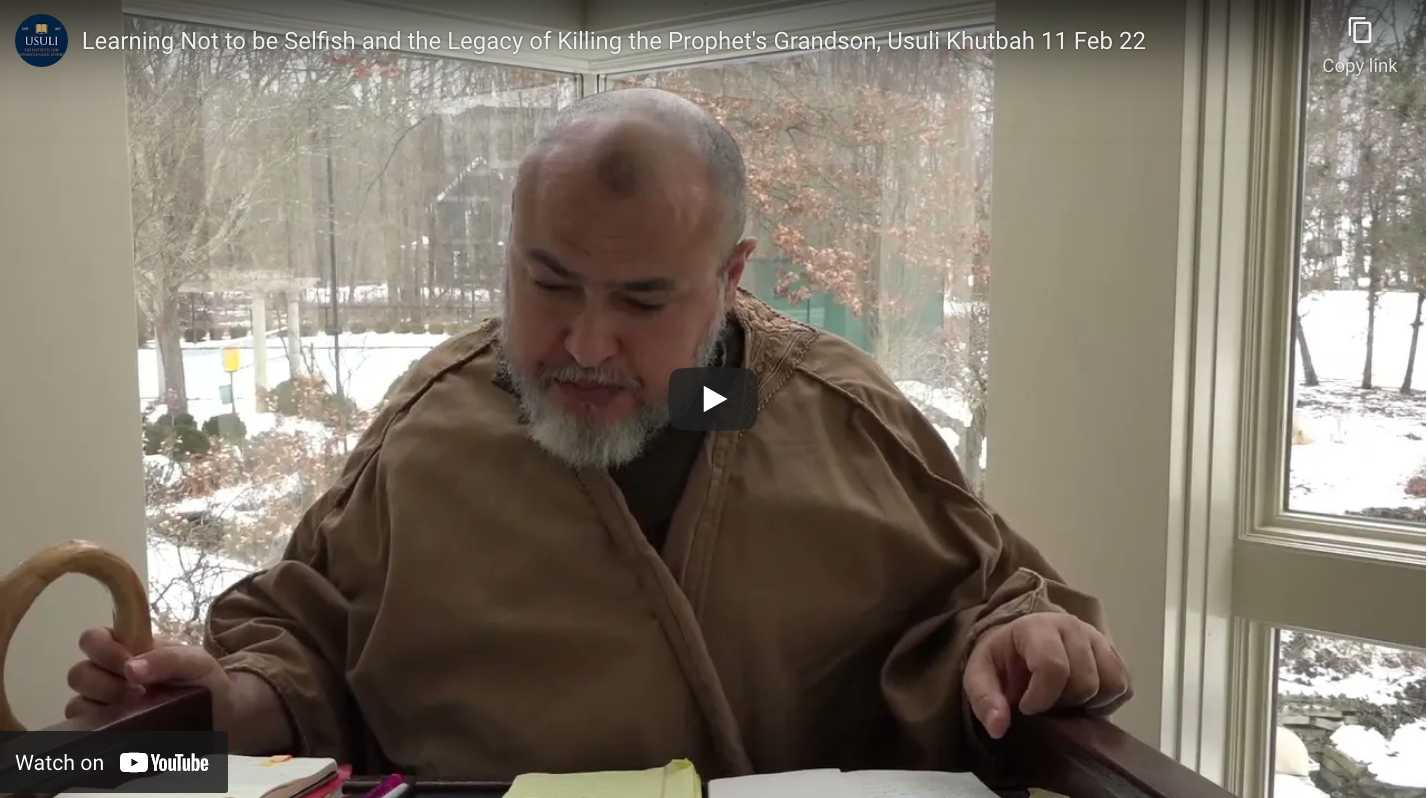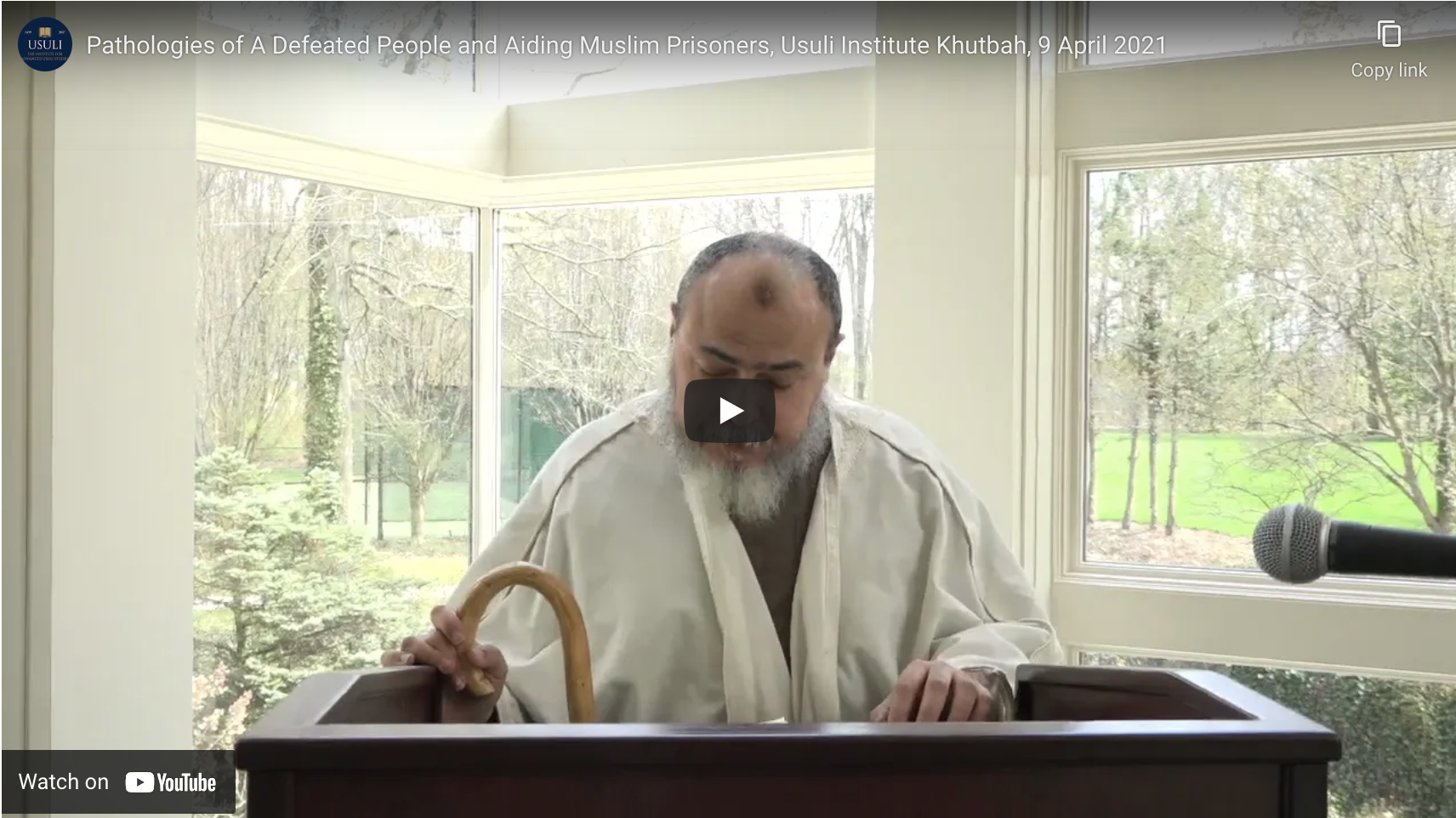Friday Khutbahs (Sermons) · 11. February 2022
It is human nature; it is embedded in our intellectual and moral, and even spiritual, code as human beings that we can recognize harm. At a very minimum, we respond to what is pleasant and unpleasant; and the nature of our learning is experiential. So much of what we know or the way we know it is because we have experienced failure, displeasure, harm, or things we have done have had unpleasant consequences. From that, we then come to a conclusion that a particular act, a particular option, a...
Friday Khutbahs (Sermons) · 15. October 2021
God reminds us in Surah Hijr, in the miracle words of the Qur'an, that this earth was spread before us, unfolded like a meticulously organized plan created by God, in order to create for us a habitat and a living space. God created on this earth everything in a meticulously balanced fashion. The way that the earth has been calibrated for our lives, as well as the lives of all living things on this earth, is an absolute miracle because, given to its natural processes, it is an earth that...
Friday Khutbahs (Sermons) · 09. April 2021
In last week’s second khutbah, I spoke about the increasingly restrictive, increasingly racist atmosphere against Islam and Muslims in France, but also more generally, unfortunately, in Europe. As we noted last week, the way this racism is expressed in countries like France is through targeting Muslim women, and in the case of France, outright banning any Muslim woman under the age of 18 from wearing the hijab. Although in France, underage drinking and underage drug consumption is extremely...
Friday Khutbahs (Sermons) · 18. October 2019
Dr. Abou El Fadl begins with a reminder that we remain committed to the truth that everything is from Allah, and everything will return to Allah. One of the central narratives of the Quran, that many Muslims learn and often repeat, is Ayat Al Kursi (Chapter 2, Verse 255). It is a monumental reminder of the truth of our existence and our relationship to our Maker. The wisest of Muslims are the ones who reflect even just on this verse, for the amazing amount of insight it yields into our Maker...
Friday Khutbahs (Sermons) · 11. October 2019
Dr. Abou El Fadl reminds that Allah has given us the Shari’ah, a path, a guidance, like a map. So, follow it and do not follow the whims of those who do not know. If you enter into a relationship with the Divine, you will feel the Divine and the Divine will guide you. The unjust are supported by the unjust. The nature of injustice is like an infection. It starts small but grows and extends, and when supported, results in further injustice. It is not just a theological principle; it is a...
Friday Khutbahs (Sermons) · 09. August 2019
In the khutbah before Eid al Adha, Dr. Abou El Fadl reminds us of the beautiful history, theology, philosophy and symbolism of the Islamic pillar of faith known as Hajj, the pilgrimage, to be made at least once in a lifetime by every Muslim on the planet if they are financially and physically able to do so. He reminds us of what the meeting of Muslims from around the world used to mean, long before the age of information and connectedness that we now understand in our current times. Hajj was at...
Friday Khutbahs (Sermons) · 19. July 2019
Dr. Khaled Abou El Fadl begins by reminding us of the meaning, import and implications of the "straight path," al-siratal mustaqim, the phrase that Muslims recite more than any other as they recite the first chapter of the Quran, al-Fatiha, in every prayer and with a multitude of occasions. Despite reciting it frequently, Muslims infrequently reflect upon the depths of meaning the phrase contains. In seeking the divine path of justice, beauty, compassion and mercy, human beings have been given...
Friday Khutbahs (Sermons) · 12. April 2019
Dr. Khaled Abou El Fadl explains the act of creation by God as an act of love and describes how beauty, love, justice and the act of returning the love of God are at the core of one's understanding of Islam. He reminds us of how God's love is the beginning and the end, and how God continually extends and offers love to every human being regardless of whether that human being is good or bad; a believer or a non-believer, awaiting reciprocation if humans so choose. God is light and light is love....
Friday Khutbahs (Sermons) · 01. March 2019
Dr. Khaled Abou El Fadl addresses questions arising from his previous khutbahs regarding how to receive and assess knowledge and develop and trust one's own intuition or native instinct (fitrah) in determining what is authentically Islamic. He elaborates on the example of pure water entering a clean vessel versus a dirty vessel in understanding the impact of a divine message on the soul (vessel) receiving that message. He discusses how to evaluate the moral character of religious authority, be...
Circles of Learning (Halaqas) · 11. August 2018
In Part 1, Director Grace Song discusses her most powerful role model for a Muslim woman, her mother-in-law Afaf El-Nimr. She also talks about the oppression facing the Uyghur Muslims in China. Dr. Abou El Fadl further elaborates on the crises in China, Burma, the Middle East and around the world as a product of Islamophobia and the burden upon Muslims to invest in combatting Islamophobia.










